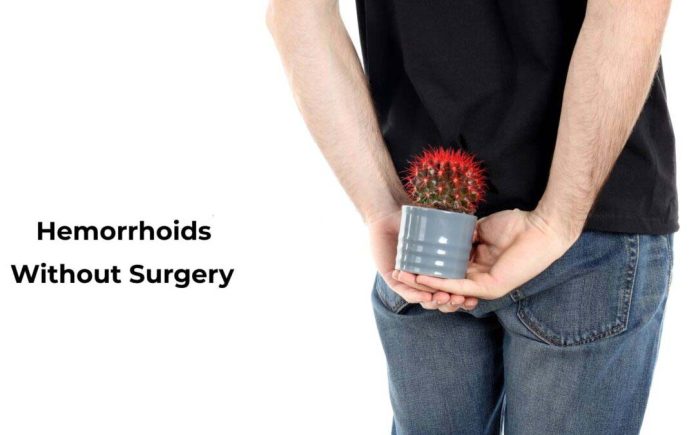Hemorrhoids, also known as piles, are swollen veins in the lower rectum and anus that can cause discomfort, itching, bleeding, and pain during bowel movements. While severe or long-standing hemorrhoids may require surgical intervention, many cases can be effectively managed and treated without surgery. Non-surgical treatments focus on relieving symptoms, reducing inflammation, and preventing recurrence.
In this article, we will explore hemorrhoid treatment without surgery, including lifestyle changes, home remedies, over-the-counter products, and minimally invasive procedures that can help manage the condition.
Understanding Hemorrhoids
There are two main types of hemorrhoids:
- Internal Hemorrhoids: Located inside the rectum and usually painless, but may cause bleeding.
- External Hemorrhoids: Found under the skin around the anus, often painful and can cause swelling and irritation.
Symptoms vary in severity and may include itching, pain, bleeding during bowel movements, and a feeling of fullness in the rectum. Fortunately, most mild to moderate cases can be treated successfully without surgery.
Home Remedies and Lifestyle Changes
- High-Fiber Diet
A diet rich in fiber helps soften stools and reduce straining during bowel movements, a common cause of hemorrhoids. Include fruits, vegetables, whole grains, and legumes in your meals. Fiber supplements like psyllium husk can also be beneficial. - Stay Hydrated
Drinking plenty of water (at least 8 glasses per day) helps prevent constipation and keeps stools soft, reducing the risk of worsening hemorrhoids. - Regular Exercise
Engaging in moderate exercise, such as walking or swimming, promotes healthy bowel movements and reduces pressure on veins. - Avoid Straining
Do not delay bowel movements or sit on the toilet for extended periods. Straining puts pressure on the anal veins, worsening hemorrhoids. - Warm Sitz Baths
Soaking the anal area in warm water for 10–15 minutes several times a day can relieve pain, itching, and inflammation. Sitz baths are a simple and effective home remedy. - Maintain Good Hygiene
Keep the anal area clean and dry. Use moist wipes instead of dry toilet paper to prevent irritation, and avoid perfumed or alcohol-based products.
Over-the-Counter Treatments
Several non-prescription products can help alleviate hemorrhoid symptoms:
- Topical Creams and Ointments: Products containing hydrocortisone or witch hazel can reduce inflammation and itching.
- Suppositories: These are inserted into the rectum to treat internal hemorrhoids and relieve symptoms like pain and bleeding.
- Pain Relievers: Oral medications like acetaminophen or ibuprofen can help manage pain and discomfort.
Always follow instructions and consult a healthcare provider before using any medication, especially for prolonged periods.
Minimally Invasive Non-Surgical Procedures
If home remedies and over-the-counter treatments don’t provide sufficient relief, a doctor may recommend non-surgical medical procedures. These are typically done in a clinic and have minimal downtime.
- Rubber Band Ligation
A small rubber band is placed around the base of the internal hemorrhoid to cut off blood flow, causing it to shrink and fall off within a few days. - Sclerotherapy
A chemical solution is injected into the hemorrhoid, causing it to shrink. This method is often used for smaller internal hemorrhoids. - Infrared Coagulation (IRC)
Infrared light is used to cut off blood supply to the hemorrhoid, which then shrinks and disappears.
These procedures are generally safe, effective, and do not require anesthesia or significant recovery time.
When to See a Doctor
If you experience severe pain, heavy bleeding, or if symptoms persist despite treatment, consult a healthcare professional. It’s important to rule out other conditions such as anal fissures or colorectal issues that may mimic hemorrhoid symptoms.
Conclusion
Hemorrhoid treatment without surgery is not only possible but often highly effective, especially for mild to moderate cases. Through a combination of lifestyle changes, home remedies, over-the-counter products, and minimally invasive procedures, most people can find significant relief. Early intervention and proper management are key to preventing complications and improving quality of life.

